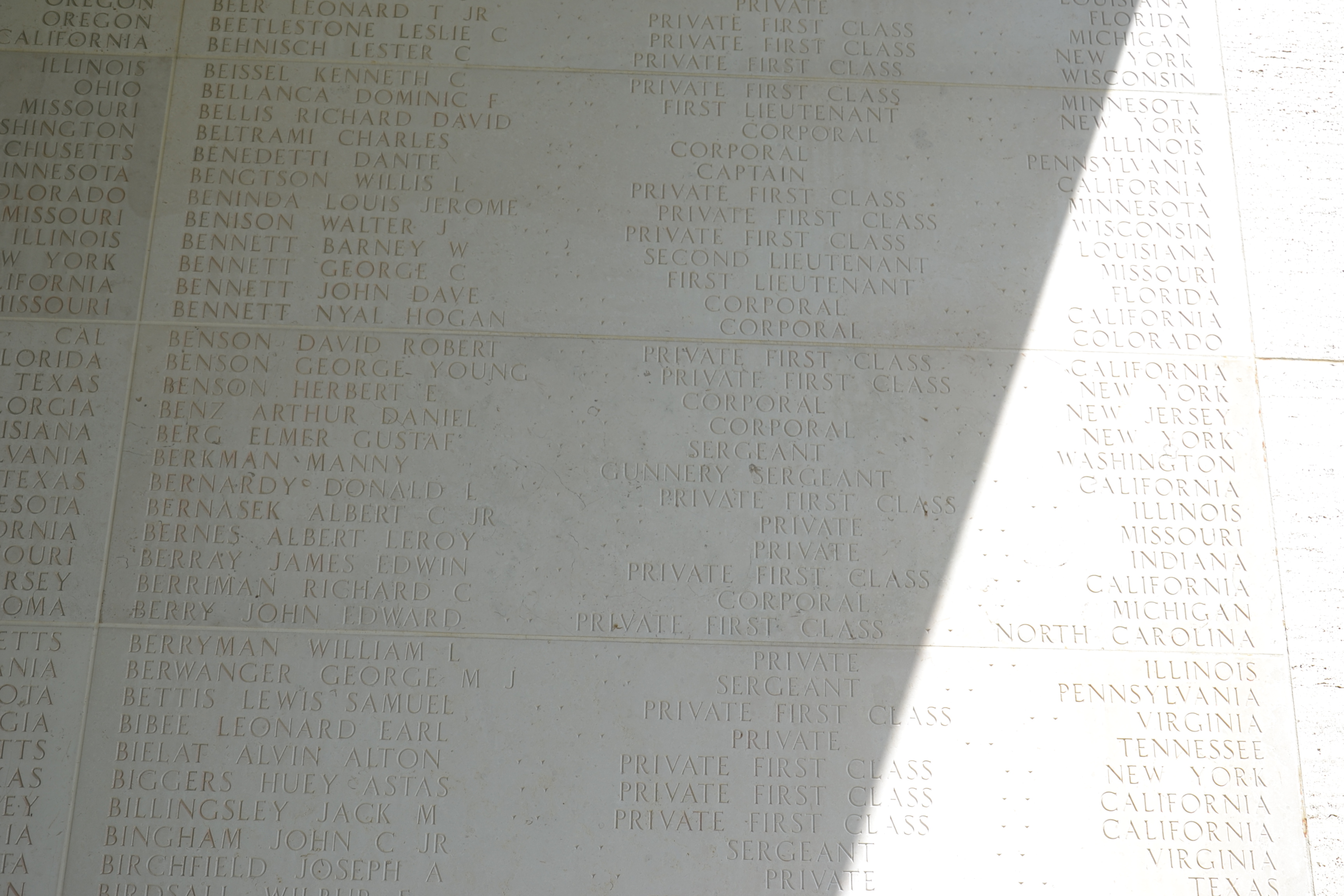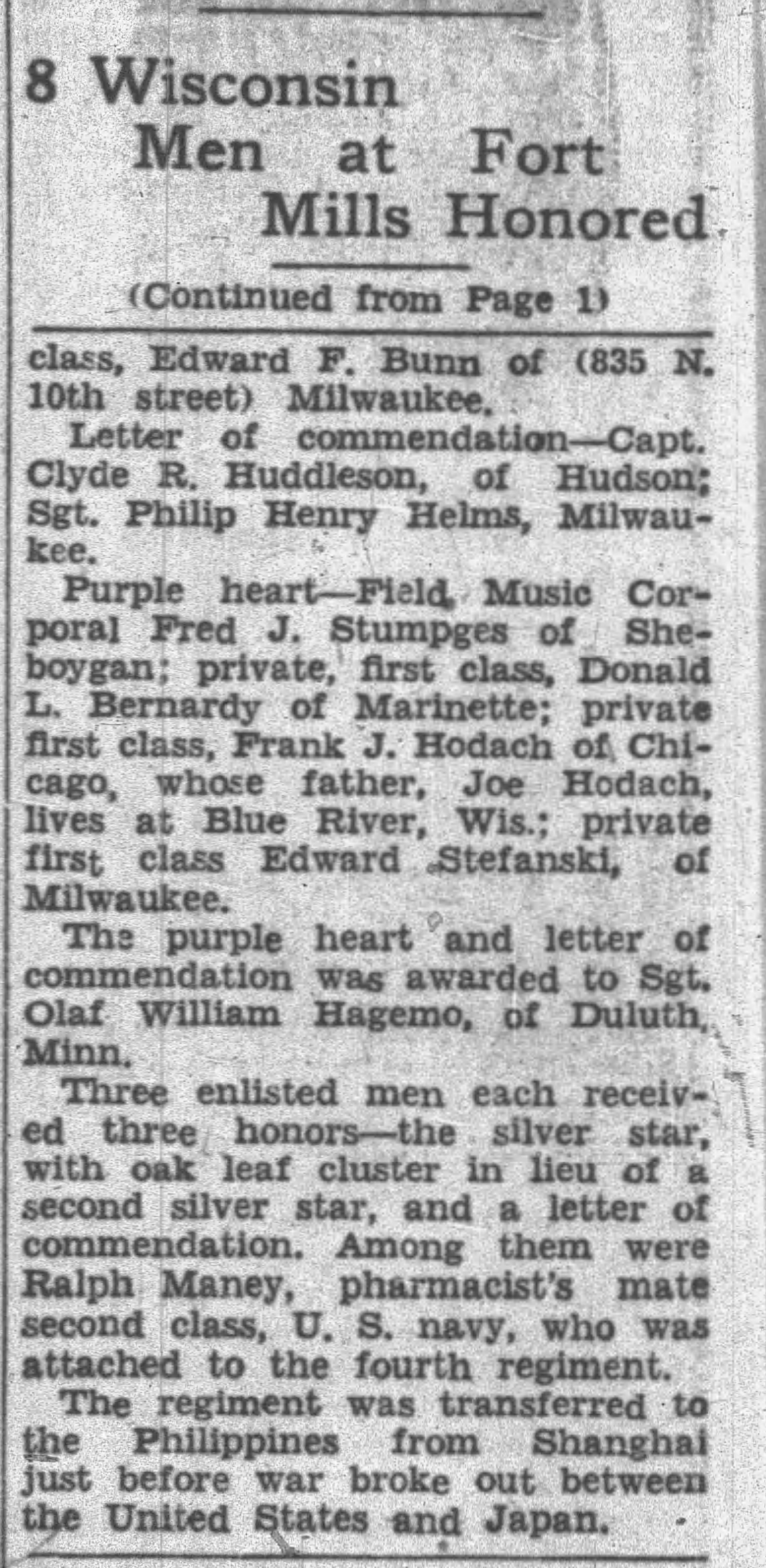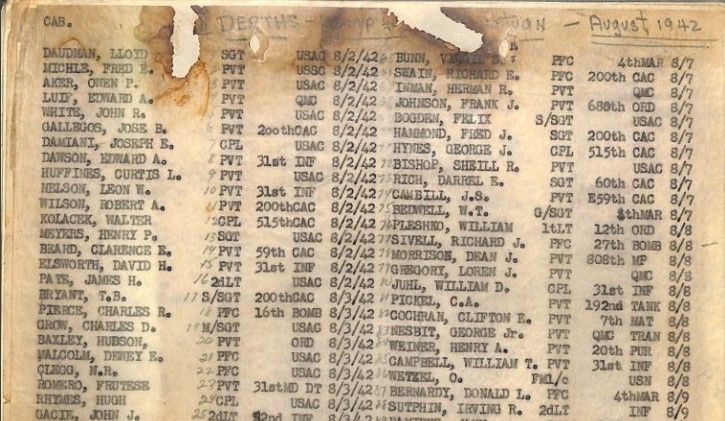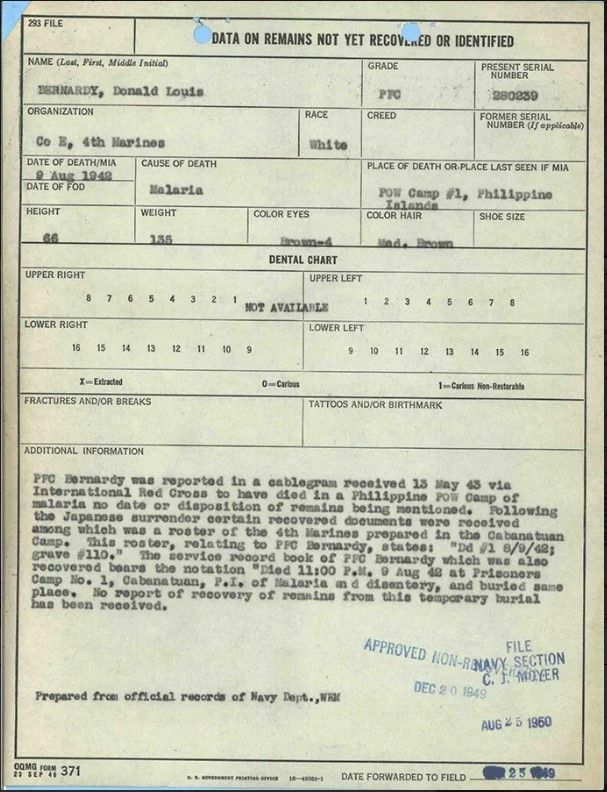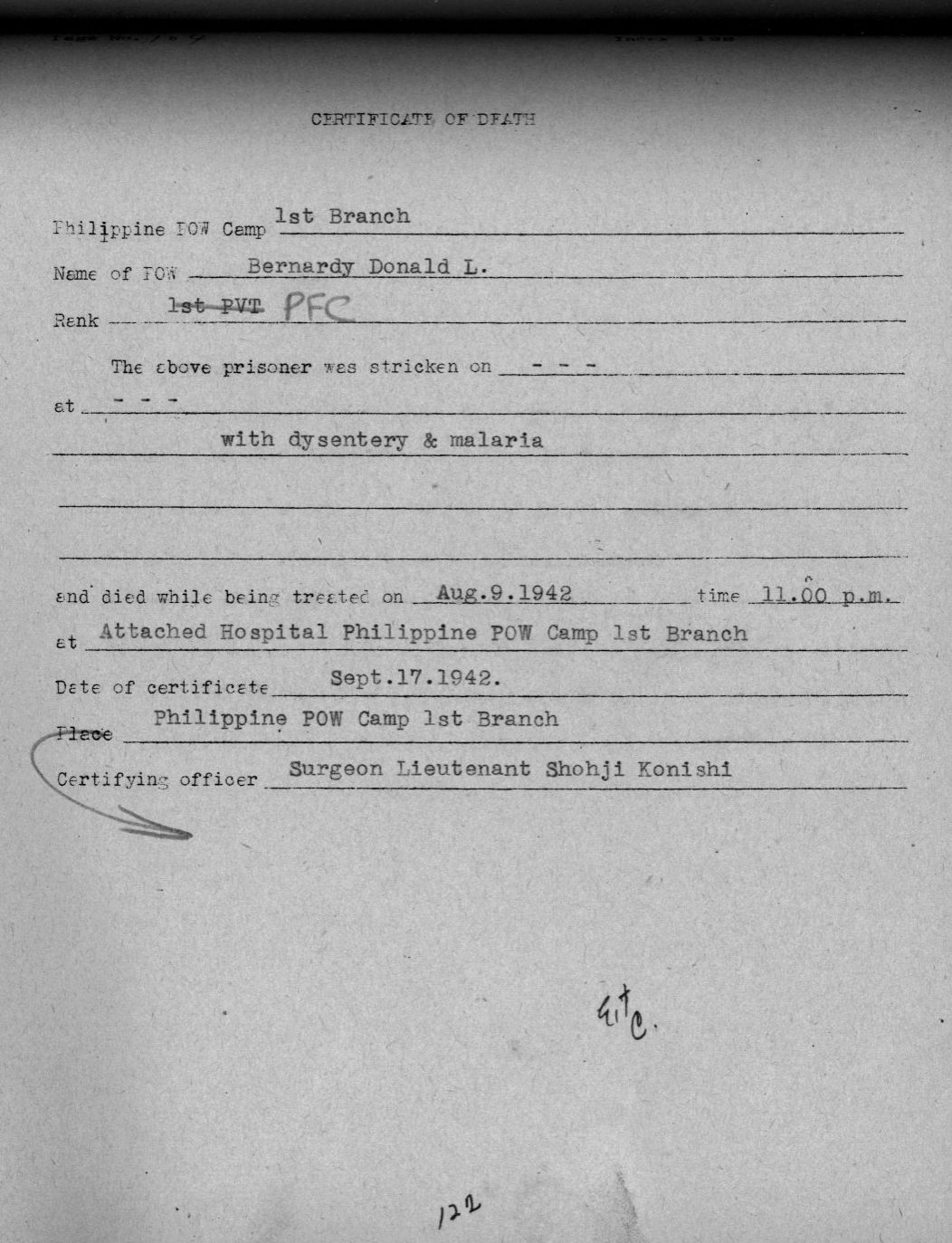After enlisting in the Marine Corps on January 8, 1940, Bernardy was sent to Marine Corps Recruit Depot, San Diego, California, for boot camp. He completed his training by the end of February, and was assigned temporarily to the barracks detachment at Mare Island Navy Yard and in 4/19/1940 he was serving in the Pacific at Marine Barracks, Naval Station, Guam. He served there as a mess-man for six months before receiving orders to proceed to Shanghai, China. There, he joined Company E, Second Battalion, Fourth Marines – the famous “China Marines.” There is some mention that he was wounded there but this author has found nothing to confirm it.
As the world steadily stepped towards war, the situation in China began to deteriorate due to the presence of a growing number of Japanese troops in China. It was ordered in November 1941 that the regiment be withdrawn to the Philippines in order to prepare against a possible enemy threat. The Marines had barely arrived when word of the attack on Pearl Harbor reached them and the next day Japanese bombers were striking at targets in the Philippines themselves. The Marines began fighting the Japanese as soon as enemy troops landed at the Naval Station at Cavite and battled thenm as they retreated under orders to Corregidor. Bernardy was one of the first men of his company to be wounded on 1/2/1942. His records show he was recorded as “sick” in the Malinta Tunnel hospital, had suffered from a “Gunshot wound left arm & shock as result of enemy aerial bombing 2Jan42.” Despite being shot and nearly killed by bombing, he was back on duty two days later, and was detached to serve on the Bataan peninsula.
The fall of Bataan on April 9, 1942, was Bernardy’s last day in combat. He, along with thousands of American and Filipino servicemen, surrendered to the Japanese after months of staunch fighting, and were subjected to the horrors of the Bataan Death March before being deposited at Cabanatuan Prison Camp. He died there of malaria and dysentery on 8/9/1942.
Private First Class Donald Louis Bernardy, Sn #280239, received the following awards/badges for his service during World War II with the United States Marine Corps:
- Combat Action Ribbon
- Purple Heart Medal
- Navy/Marine Corps Presidential Unit Citation
- Prisoner of War Medal
- American Defense Service Medal with clasp
- Asiatic-Pacific Theater of Operations campaign Medal with one bronze battle/campaign star
- World War II Victory Medal
- Philippine Defense Medal
- Philippine Presidential Unit Citation
- Marine Corps Rifle marksmanship badge
- Marine Corps Basic Qualification Badge with Bars
After enlisting in the Marine Corps on January 8, 1940, Bernardy was sent to Marine Corps Recruit Depot, San Diego, California, for boot camp. He completed his training by the end of February, and was assigned temporarily to the barracks detachment at Mare Island Navy Yard and in 4/19/1940 he was serving in the Pacific at Marine Barracks, Naval Station, Guam. He served there as a mess-man for six months before receiving orders to proceed to Shanghai, China. There, he joined Company E, Second Battalion, Fourth Marines – the famous “China Marines.” There is some mention that he was wounded there but this author has found nothing to confirm it.
As the world steadily stepped towards war, the situation in China began to deteriorate due to the presence of a growing number of Japanese troops in China. It was ordered in November 1941 that the regiment be withdrawn to the Philippines in order to prepare against a possible enemy threat. The Marines had barely arrived when word of the attack on Pearl Harbor reached them and the next day Japanese bombers were striking at targets in the Philippines themselves. The Marines began fighting the Japanese as soon as enemy troops landed at the Naval Station at Cavite and battled thenm as they retreated under orders to Corregidor. Bernardy was one of the first men of his company to be wounded on 1/2/1942. His records show he was recorded as “sick” in the Malinta Tunnel hospital, had suffered from a “Gunshot wound left arm & shock as result of enemy aerial bombing 2Jan42.” Despite being shot and nearly killed by bombing, he was back on duty two days later, and was detached to serve on the Bataan peninsula.
The fall of Bataan on April 9, 1942, was Bernardy’s last day in combat. He, along with thousands of American and Filipino servicemen, surrendered to the Japanese after months of staunch fighting, and were subjected to the horrors of the Bataan Death March before being deposited at Cabanatuan Prison Camp. He died there of malaria and dysentery on 8/9/1942.
Private First Class Donald Louis Bernardy, Sn #280239, received the following awards/badges for his service during World War II with the United States Marine Corps:
- Combat Action Ribbon
- Purple Heart Medal
- Navy/Marine Corps Presidential Unit Citation
- Prisoner of War Medal
- American Defense Service Medal with clasp
- Asiatic-Pacific Theater of Operations campaign Medal with one bronze battle/campaign star
- World War II Victory Medal
- Philippine Defense Medal
- Philippine Presidential Unit Citation
- Marine Corps Rifle marksmanship badge
- Marine Corps Basic Qualification Badge with Bars
Gravesite Details
Entered the service from Illinois.
Family Members
Other Records
Sponsored by Ancestry
Advertisement
Explore more
Sponsored by Ancestry
Advertisement










